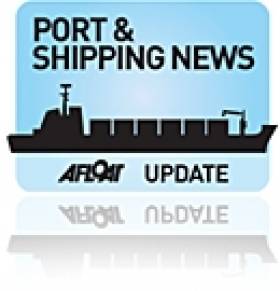Displaying items by tag: Cassiopée (M642)
French Navy to Visit Dublin's St. Patrick's Festival
CMT Cassiopée is a 'Tripartite' class minehunter built for the navies of France, Belgium and The Netherlands. The class were conceived in the 1970's and built during the following decade. The French built the mine-hunting equipment, the Belgians provided the electronics and the Dutch constructed the propulsion unit.
Displacing 615 tonnes, Cassiopée (see photo) was built by the Direction des Constructions Navales (DCN) shipyard in Lorient and entered service in 1984. The 51.5m minehunter has a crew of 49. Over the years several of the Tripartite class were sold to the navies of Bulgaria, Indonesia, Latvia and Pakistan.
In January 2009 the Cassiopée was joined by the L.E. Emer (P21) in Bantry Bay to commemmorate the 30th anniversary of the Whiddy Island Oil Refinery disaster and the sinking of the French supertanker the Bételgeuse.
Like the Cassiopée the minehunter BRS Altaïr (M771) was also built in 1984 but at the Chantier (Socarenam) shipyard at Boulogne-sur-Mer. At 28m long the craft (photo) is one of the three Antar class which has a 250 tonnes displacement and a crew of 23.
The French Naval call to the capital was to coincide with a visiting task force group from the German Navy. The task force of two frigates and a support ship were due to visit at the weekend but this was cancelled due to humanitarian relief operations off Libya. To read more about this and the task force vessels click here.





























































